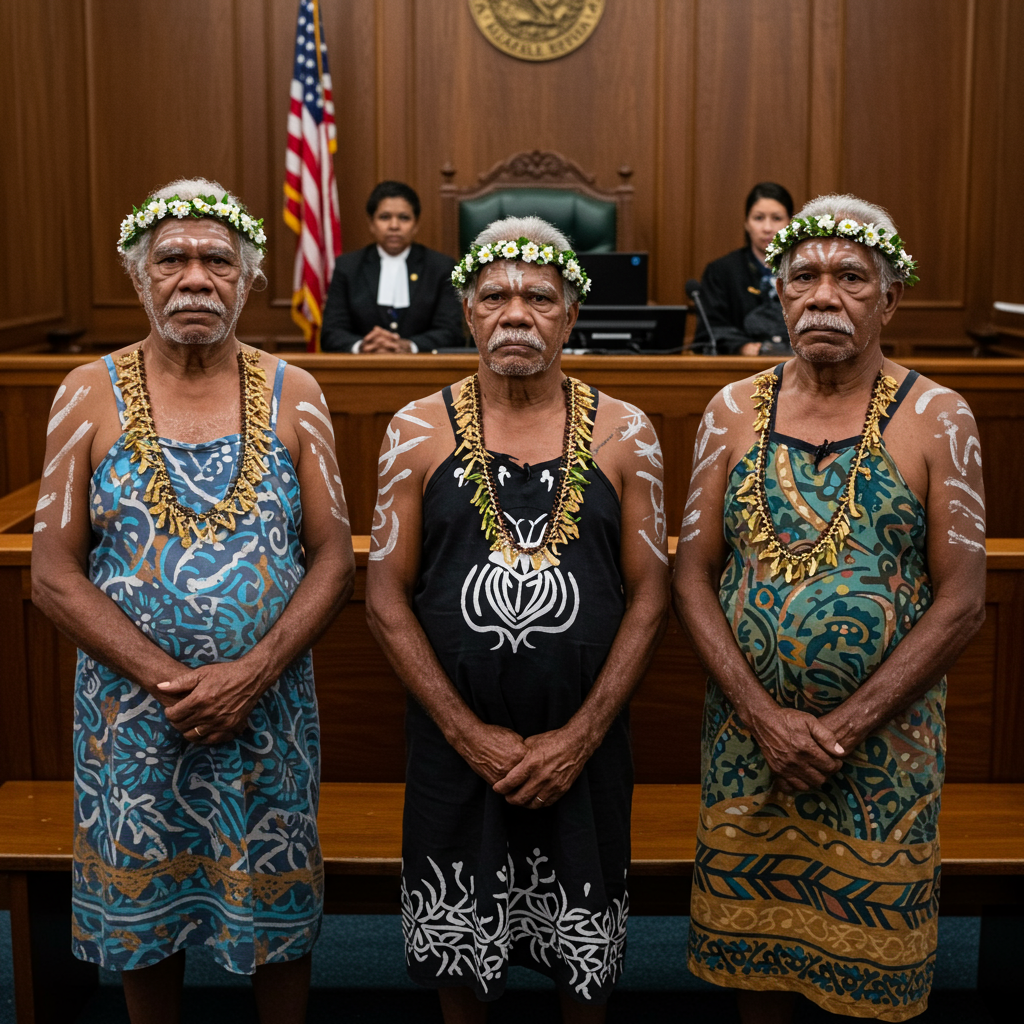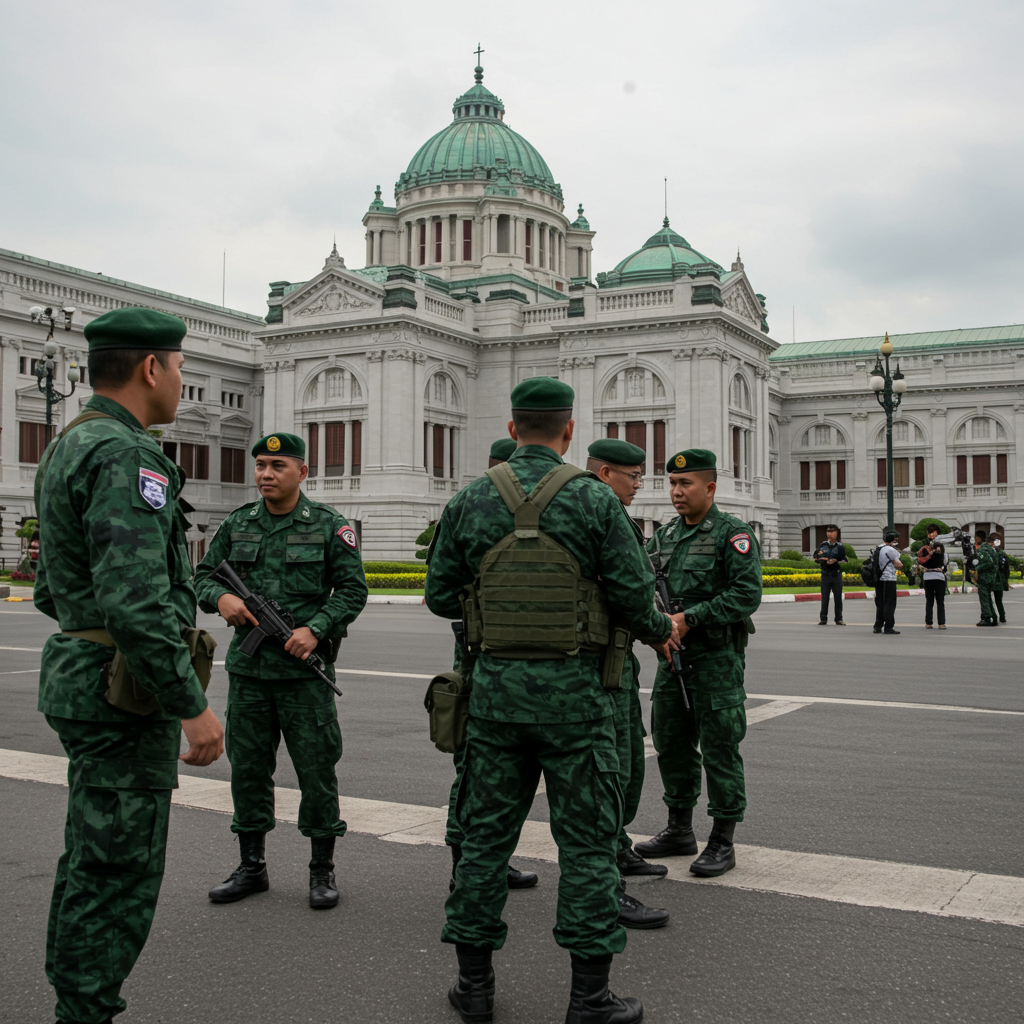A landmark legal challenge brought by Indigenous elders from the Torres Strait Islands against the Australian government regarding climate change impacts has been dismissed. The Federal Court ruled against the elders, finding the government did not owe a specific duty of care to protect the islands from global warming under existing negligence laws. This decision highlights the complex intersection of climate science, legal responsibility, and government policy in Australia.
The case was initiated in 2021 by community leaders Pabai Pabai and Paul Kabai. These respected elders launched legal action against the Commonwealth government. Their core argument centered on an alleged breach of a duty of care. They contended the government had a responsibility to take reasonable steps to protect the low-lying Torres Strait Islands and their inhabitants from the devastating effects of climate change.
The Elders’ Powerful Case and Evidence
Uncle Pabai Pabai and Uncle Paul Kabai, Traditional Owners from the region, presented compelling evidence of the severe climate impacts already affecting their homelands. They described beaches eroding and turning into mudflats. River systems are increasingly inundated with saltwater, making traditional gardens and water sources unusable. Sacred cultural sites and ancestral cemeteries have been damaged or destroyed by flooding and rising seas.
The court heard that sea levels in the Torres Strait are rising at a rate significantly higher than the global average. Between 1993 and 2019, sea levels in the area rose by about 6 cm per decade, essentially double the worldwide rate. This rapid rise directly threatens the habitability of islands, many of which sit only slightly above sea level.
Cultural Loss and the Threat of Displacement
A central part of the elders’ submission focused on the unique cultural identity of the Torres Strait Islanders, known as Ailan Kastom. They described a profound spiritual and physical connection to their islands and surrounding waters. This connection is integral to their identity, traditions, and the ability to pass on ancestral knowledge. Uncle Pabai shared the deep personal significance of cemeteries, describing them as places for “talking to my ancestors.” Losing his island, Boigu, he stated, would mean losing himself.
The elders argued that the government’s failure to take sufficient action on greenhouse gas emissions targets put this distinctive culture at risk of being lost forever. They raised fears that residents would be forced to leave their ancestral lands and become climate refugees, severing thousands of years of connection to Country. Uncle Paul recounted how Saibai island, a “land of plenty” in his childhood, is now struggling with saltwater intrusion that has decimated freshwater swamps, making them uninhabitable for fish and crabs. He also cited the failure of a seawall, breached by a king tide, as evidence of the increasing intensity of climate events.
Legal Arguments and Government Defence
The plaintiffs sought court orders to compel the government to take more robust action, including setting emissions targets aligned with the “best available science” to help limit global warming to 1.5 degrees Celsius. Expert climate scientist Malte Meinshausen testified that Australia, as a significant per capita emitter, would need deeper cuts than its current targets to align with this crucial global goal. Breaching the 1.5-degree limit poses irreversible damage risks for low-lying islands.
However, the Commonwealth government countered these arguments. They maintained that setting national emissions reduction targets and allocating funds for protective infrastructure like sea walls are complex policy matters. Such decisions, they argued, are the responsibility of the parliament and the executive government, not the courts. The government denied owing a specific duty of care to the Islanders in this context. They also contended that Australia’s emissions contribution is relatively small globally and that there is no international consensus on dividing emissions responsibilities.
The Federal Court’s Decision
Justice Michael Wigney presided over the case. In his ruling, he acknowledged the severe reality of climate change and its devastating impact on the Torres Strait Islands. He recognized that climate-related flooding had already damaged sacred sites and burial grounds. He stated there could be “little, if any, doubt” that the islands and their inhabitants face a “bleak future” if urgent climate action isn’t taken.
Despite this acknowledgment, Justice Wigney dismissed the case. He ruled that establishing a legal duty of care in this context did not fit within the scope of existing Australian negligence laws. He reiterated the government’s argument that setting emissions targets and making climate policy decisions are fundamentally matters of “core government policy” and should ordinarily be decided through political processes, not by judges. The court found it difficult to establish clear legal standards against which to measure government behavior in such complex policy areas. Furthermore, Justice Wigney noted that current negligence laws do not allow for compensation specifically for the loss of culture, customs, and traditions resulting from government policies.
Reactions and Future Implications
The decision was met with profound disappointment by the elders and their communities. Uncle Pabai shared his heartbreak, saying, “My heart is broken for my family and my community.” Uncle Paul expressed his shock, stating, “I thought that the decision would be in our favour.” He emphasized that the pain extended beyond their community to all people affected by climate change.
In a joint statement, Australia’s Minister for Climate Change and Energy Chris Bowen and Minister for Indigenous Australians Malarndirri McCarthy acknowledged the vulnerability of the Torres Strait Islands. They stated they understood the impacts residents were already facing. While noting that the current government’s emissions targets were more ambitious than the previous one, the statement reiterated the government’s position on taking action.
Legal experts view the decision as a significant setback for the Torres Strait Islanders and broader climate litigation efforts in Australia. However, it does not necessarily close the door on future legal challenges or legislative change. Riona Moodley from the University of NSW’s Institute of Climate Risk and Response suggested that Australian law will need to adapt to meet the challenges posed by climate change. Her colleague Wesley Morgan added that the court’s findings should serve as a catalyst for the government to strengthen its climate policies based on scientific advice. The elders themselves see their action as having already made a difference by raising awareness and ensuring the government is “listening” to what is happening. They have vowed to continue their fight to protect their homelands and culture, framing their struggle as a continuation of the legacy of land rights advocate Eddie Mabo.
Frequently Asked Questions
What was the key legal argument in the Torres Strait climate case?
The core argument by the Torres Strait Islander elders was that the Australian government owed them a legal “duty of care.” They contended this duty required the government to protect them from the impacts of climate change by taking reasonable steps, such as setting emissions targets aligned with climate science and funding adaptation measures.
Where are the Torres Strait Islands, and how vulnerable are they to climate change?
The Torres Strait Islands are located between far-north Queensland, Australia, and Papua New Guinea. Comprising about 270 islands, they are extremely vulnerable to climate change. Many are low-lying, and rising sea levels, erosion, and saltwater intrusion are already damaging land, cultural sites, and traditional food sources, threatening their habitability.
What was the outcome of the Torres Strait climate case, and what does it mean for future action?
The Federal Court dismissed the case, ruling that the Australian government does not owe a specific duty of care to protect the Islanders from climate change under existing law. The court determined that climate policy and emissions targets are matters for parliament, not the courts. While a setback, legal experts suggest the law may need to evolve, and the case highlights the urgent need for government action.
Despite the court’s ruling, the Torres Strait Islander elders remain determined to advocate for the protection of their homelands and unique culture against the existential threat of climate change. The case has shone a crucial light on the disproportionate impacts faced by vulnerable Indigenous communities on the front lines of the climate crisis.




